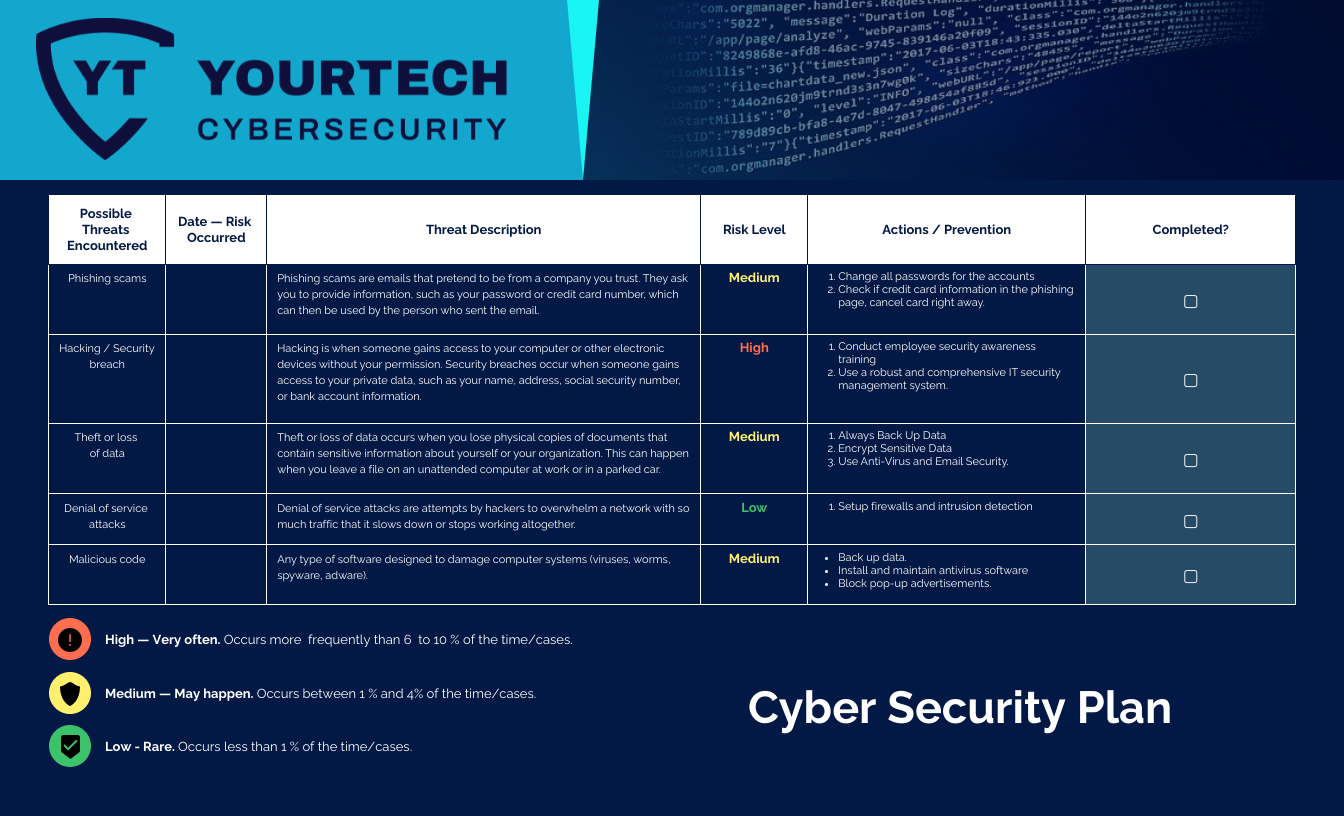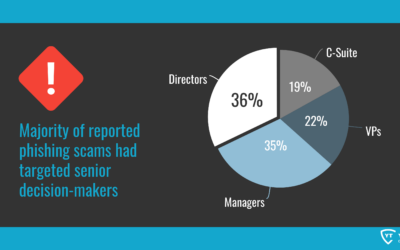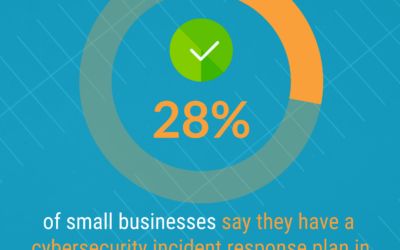As cyber attacks continue to increase in frequency and severity, it’s more important than ever for small businesses to take cybersecurity seriously. Small businesses are often targeted by cyber criminals because they may have less robust security systems in place compared to larger organizations. The consequences of a cyber attack can be devastating, including financial losses, damage to reputation, and legal liabilities. Here are some cybersecurity best practices that small businesses can implement to protect themselves from cyber threats.
1. Train employees on cybersecurity best practices
One of the biggest vulnerabilities for small businesses is their employees. Employees may inadvertently click on malicious links or download malware, which can compromise the entire network. To minimize this risk, small businesses should provide cybersecurity training to all employees. This training should include topics such as identifying phishing scams, creating strong passwords, and keeping software and security systems up to date.
2. Use strong passwords and encryption
Weak passwords are an easy target for cyber criminals. Small businesses should encourage their employees to create strong, unique passwords for all accounts and systems. Passwords should be at least 12 characters long and include a mix of upper and lower case letters, numbers, and symbols. In addition, small businesses should use encryption to protect sensitive data. Encryption scrambles data so that it cannot be read by anyone who does not have the decryption key.
3. Keep software and security systems up to date
Outdated software and security systems can be vulnerable to cyber attacks. Small businesses should regularly update all software and security systems to ensure they have the latest security patches and features. This includes not only the operating system, but also any applications and plugins that are used.
4. Backup data regularly
Small businesses should have a regular backup schedule in place for all critical data. This ensures that in the event of a cyber attack, data can be quickly and easily restored. Backups should be stored securely, such as on an encrypted external hard drive or in the cloud.
5. Monitor and control access to sensitive data
Small businesses should implement access controls to ensure that only authorized employees can access sensitive data. This includes using multi-factor authentication and limiting access to data on a need-to-know basis. Small businesses should also monitor access logs to detect any unauthorized access attempts.
6. Conduct regular security assessments
Small businesses should conduct regular security assessments to identify potential vulnerabilities and areas of weakness in their security systems. This can be done through self-assessments or with the help of a third-party security consultant. These assessments can help small businesses identify gaps in their security and take corrective action before a cyber attack occurs.
7. Implement a cybersecurity incident response plan
Small businesses should have a cybersecurity incident response plan in place to ensure that they can respond quickly and effectively to a cyber attack. This plan should include steps to take in the event of a cyber attack, such as disconnecting affected systems, notifying employees, and contacting law enforcement. Small businesses should also have a plan for restoring data and systems after an attack.
8. Partner with a trusted cybersecurity provider
Small businesses can benefit from partnering with a trusted cybersecurity provider to help manage their security systems. A cybersecurity provider can offer services such as antivirus and malware protection, network monitoring, and threat detection and response. This can help small businesses stay ahead of evolving cyber threats and have peace of mind knowing that their security is being managed by experts.
Small businesses should prioritize cybersecurity and take steps to protect themselves from cyber threats. By conducting regular security assessments, implementing an incident response plan, and partnering with a trusted cybersecurity provider, small businesses can reduce their risk of a cyber attack and protect their business and customers from harm.
Our goal is to provide unmatched service in the industry and exceed client expectations. Trust us to provide the best possible cybersecurity services to protect your business. Don’t let current cybersecurity events worry you – Schedule a quick 15-minute appointment with us to see how we can help, or call us at (905) 892-4000.
- Grimsby, ON
- Welland, ON
- Hamilton, ON
- Burlington, ON
- Niagara Falls, ON
- Port Colborne, ON
- St. Catharines, ON
- Fonthill, Pelham, ON
- Vineland, Lincoln, ON
- Stoney Creek, Hamilton, ON
- Beamsville, Lincoln, ON
- Pelham, ON
- Wainfleet, ON
- West Lincoln, ON
- Smithville, ON
- Fort Erie, ON
- Thorold, ON
- Niagara-on-the-Lake, ON




